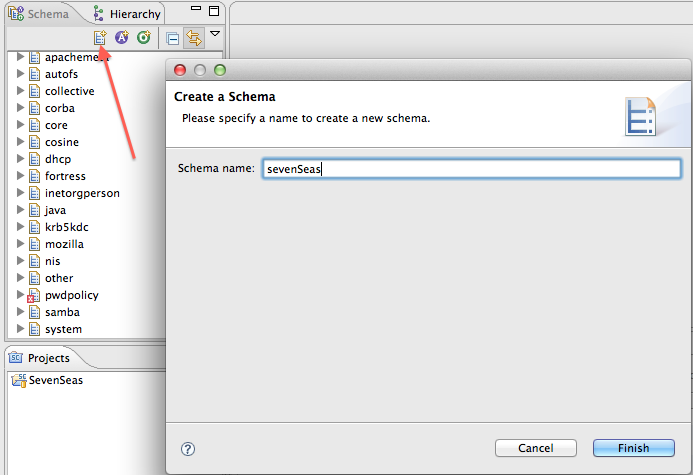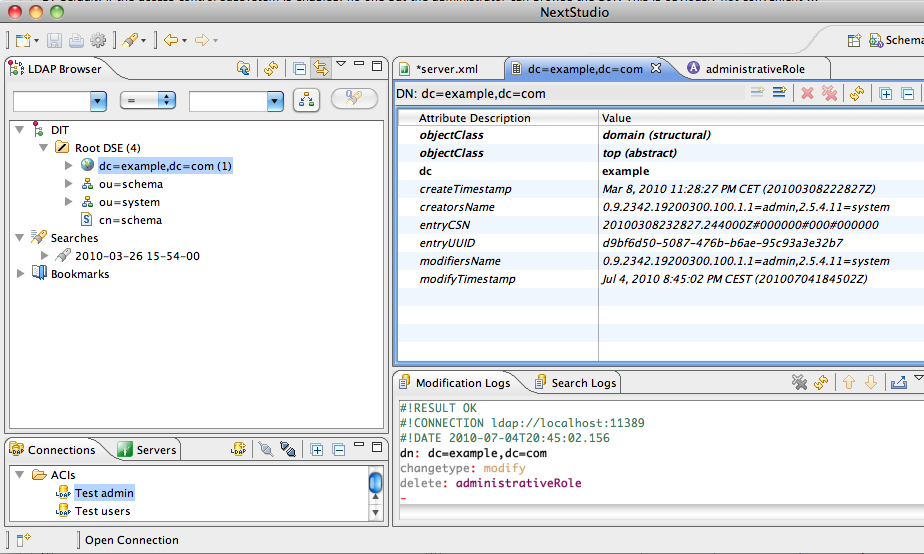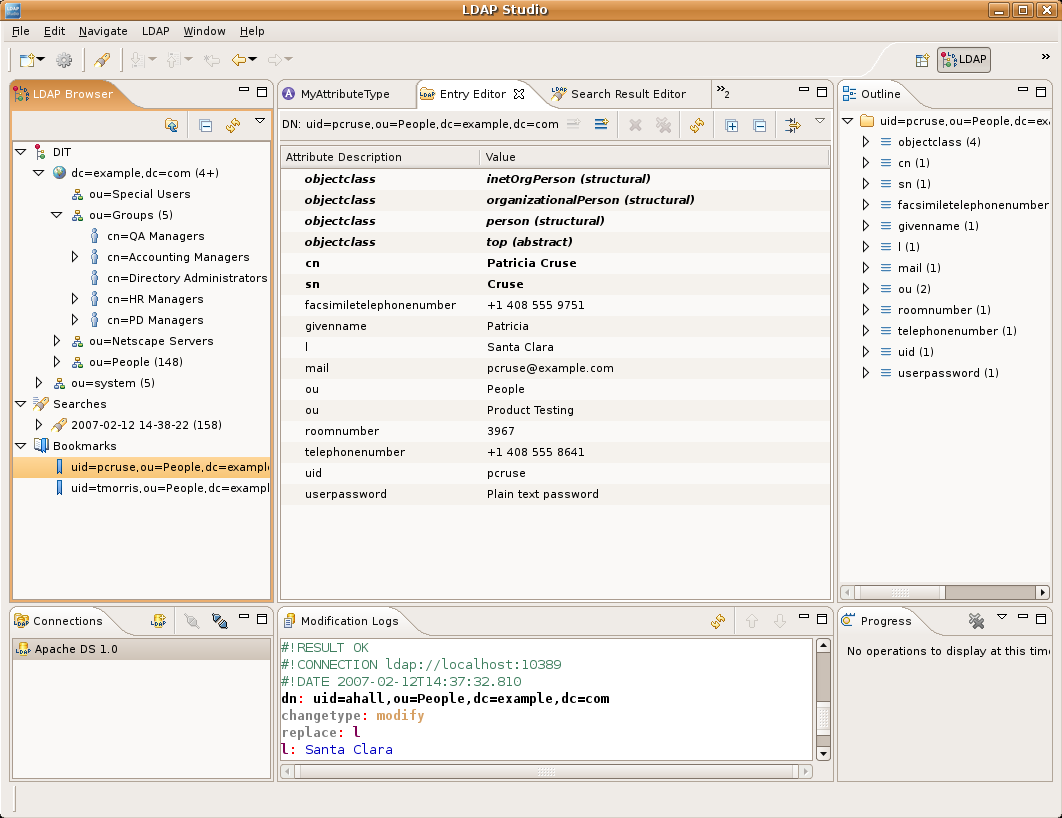

- #Apache directory studio sasl realm how to#
- #Apache directory studio sasl realm install#
- #Apache directory studio sasl realm full#
Set pam authentication for login: ~$ sudo pam-auth-update :x: from local files (/etc/passwd and /etc/group)īe sure you get :*. The source of the query is indicated by the character behind the user id. Be sure the queried user account is only in the ldap directory, not in local files. There is no look at `/etc/nf`ĭon't forget to protect nf, otherwise sssd will not start: ~$ sudo chmod 600 /etc/sssd/nfĬheck if the operating system gets the account information from the ldap directory. #ldap_sasl_authid = krb5_realm must always be set here. # If the authid isn't the first entry in /etc/krb5.keytab then set it here k5login file in the home directory of the user Ldap_search_base = ou=home,dc=example,dc=com # SRV record for backup server isn't supported. # If you haven't a SRV record in DNS for the server then set it here # Set enumerate only for debugging, never for production! # by sssd-nss.socket and sssd-pam-priv.socket The only what's left over is to configure /etc/sssd/nf.
#Apache directory studio sasl realm install#
We need just four packages to provide all needed services for ldap, krb5, name service and pam: ~$ sudo apt -no-install-recommends install sssd-ldap sssd-krb5 libnss-sss libpam-sss ~$ sudo ldapsearch -Y GSSAPI -LLL -H ldap:// -b "ou=home,dc=example,dc=com" "(cn=ingo)" uid cnĭn: cn=ingo,ou=group,ou=home,dc=example,dc=comĭn: uid=ingo,ou=people,ou=home,dc=example,dc=com # Check if the rvice can access the LDAP-server. # Query for ldap service (response: on port 389)

# Query for kerberos service (response: on port 88)
#Apache directory studio sasl realm full#
# check DNS resolution must resolve full qualified dns names Install SASL/GSSAPI modules and helpers we need for authentication against Kerberos and tests: ~$ sudo apt -no-install-recommends install libsasl2-modules-gssapi-mit dnsutils ldap-utils We must not use it because sssd will do the same. If you have the nscd cache running for name service then deinstall it.

According to Debian hostname resolution you should have an entry in /etc/hosts like this: 127.0.1.1. This may work sometimes because of cached login data but with invalid kerberos ticket data shown with klist. sssd wasn't able to resolve the DNS domain with my extended DNS name resolution, so it does not find the Kerberos- and LDAP-server and login fails with error message Authentication failure. Kadmin: addprinc -policy host -randkey host/.Īfter installing a Graphical User Interface like GNOME, or Xfce, I run into problems with name resolution. To avoid installation of unneeded additional packages I always use option `-no-install-recommends` for Debian **apt**.įirst ensure that you have a valid `/etc/krb5.keytab` with `sudo klist -ke`. If you don't have it on a DNS server you can define it all local on every client. I want to have general configuration centralized so I use a local private dns server for name-, servername- and servicename-resolution.

#Apache directory studio sasl realm how to#
What Debian packages only I have to install to get a single sign on using sssd against OpenLDAP server with Kerberos SASL/GSSAPI and how to configure it?Īfter some tries and error I found that I need one package for gssapi and four packages for sssd. I want to have my clients as lean as possible without unused software, so my question is: for active directory and other things I do not need. But on Debian the recommended package sssd installs all possible services, e.g. But because I consistent use systemd and its environment, that traditional setup does not fit very well to it and I run into some problems with systemd-resolved together with nsswitch and/or pam as shown in section "Some more details" about NSS query against OpenLDAP server.īecause of this I had a look at sssd and saw that it can do it all in one and that it is based on systemd and also uses dbus interprocess communication. I started with LDAP authentication with nss-pam-ldapd using SASL Proxy Authorization on an OpenLDAP server and Caching OpenLDAP credentials with ccreds. Now I'm looking for the client setup on Debian Buster using sssd. Authentication against Kerberos and authorization against an LDAP directory is working for me.


 0 kommentar(er)
0 kommentar(er)
